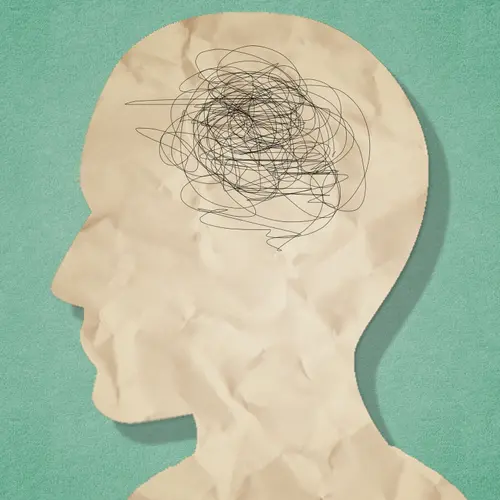If you’re an adult with ADHD, medications can help a lot. They can help you focus and have a feeling of control.
But for many people, these perks come with a price – side effects. Most of the time, they’re mild and fade after a few weeks or months of treatment. But that’s not true for everyone.
Here’s a look at possible side effects and tips to relieve them.
Side Effects of Stimulant Medications
Most people treat their ADHD with stimulant medicines, but some take non-stimulants.
Both types have similar side effects:
- Dizziness
- Dry mouth
- Headaches
- Loss of appetite
- Moodiness
- Tics
- Trouble sleeping
Concerta Crash
Concerta is the brand name for an attention deficit hyperactivity disorder (ADHD) drug. Like Ritalin, another ADHD drug, it contains methylphenidate. Concerta comes as a once-a-day dose that releases over time, rather than all at once. It lasts up to 12 hours. This could mean that you don’t need to take a second dose during the day.
But in some people, it wears off more quickly. When this happens, your ADHD symptoms can come back and be even stronger than when you don’t take medication at all.
In addition to having trouble concentrating, you may feel:
- Sad or subdued
- Hyperactive or “wired”
- Tired
- Grouchy
- Anxious
Concerta boosts levels of a chemical in your brain called dopamine. It does this by blocking transmitters in your brain that reabsorb it after it’s released. This lets the neurons in your brain send and receive signals better, so you can focus. When the drug leaves your system, your brain can’t process the signals as well, and your symptoms come back. This is the crash. Doctors also sometimes call this a medication rebound.
Concerta releases quickly at first and then wears off gradually and evenly as your kidneys or liver filters it out. How quickly this happens depends upon how fast your body processes the medication. For some, the drug’s effects might last 10 hours; for others, only 6. Rather than a gradual return, ADHD symptoms can appear suddenly. When they do, they’ll last an hour or so.
When Concerta wears off and leaves your system, symptoms of ADHD may hit you even harder than before you took it. Your doctor likely needs to make changes with your medication.
Tips to Reduce the Side Effects of ADHD Medications
There are simple things you can do to make taking these medications less of a problem.
- Dizziness. Sometimes, dizzy spells can be a sign that you’re taking too much medication. Check with your doctor. They might also want to check your blood pressure.
- Dry mouth. Drink plenty of fluids, and use lozenges to keep your mouth moist.
- Headaches. You might get them after you take your medication on an empty stomach, or if you’re dehydrated. Sometimes they come on as the medicine wears off. Your doctor may be able to help by tweaking when you take your drug.
- Loss of appetite. Some drugs can make you not want to eat much. But don't skip meals. That can lead to low blood sugar, and that may make it harder to focus. Instead, eat several small meals a day, rather than three bigger ones. Eat dinner later in the evening, after the effects of your medication have worn off. You may feel hungry then. Sometimes the worse appetite leads to weight loss. It’s usually just a small amount, but tell your doctor if you think you're losing too much weight.
- Moodiness. Some people find that their medications make them tense and cranky. Like most ADHD drug side effects, this may fade in time. If your moodiness is bothering you, ask your doctor about adjusting the dose or changing your medication.
- Nausea. Take your medicine with food to lower your odds of feeling queasy. If you’re supposed to take it in the morning and you’re not a breakfast person, you may want to find something you can eat anyway.
- Tics. Theseare repeated movements or sounds that you make without meaning to. ADHD medications don’t cause tics, but they can sometimes bring them out – maybe tics you had in childhood will come back. Usually these fade over time, but talk to your doctor if they don't go away.
- Trouble sleeping. Some ADHD medications can rev you up and make it hard to fall asleep. Take your medication earlier in the day, so it wears off well before bedtime. If you’re on a long-acting stimulant, you could ask your doctor about trying a short-acting one, where the effects will fade more quickly. Limit or avoid caffeine, too. Turn off your TV, computers, and phones an hour or so before going to bed, and take time to relax.
There’s no way to know how well a medicine will work for you. Some people do better on one drug than another. It can take a few tries to find the right one.
If you have high blood pressure, heart problems, or a history of mental health issues or addiction, your doctor needs to know. These conditions may cause problems with your treatment.
Doctors sometimes treat adults with drugs that aren't FDA-approved for ADHD. This is called “off label” use. Because these drugs have different side effects – and benefits and risks – you should go over the specifics with your doctor.
Many people feel the side effects of their ADHD medicationsare worth dealing with to get the benefits of the drugs. But if they’re severe or interfering with your life, don’t try to ignore them. Get help from your doctor. Together, you'll be able to come up with a plan that works best for you.

